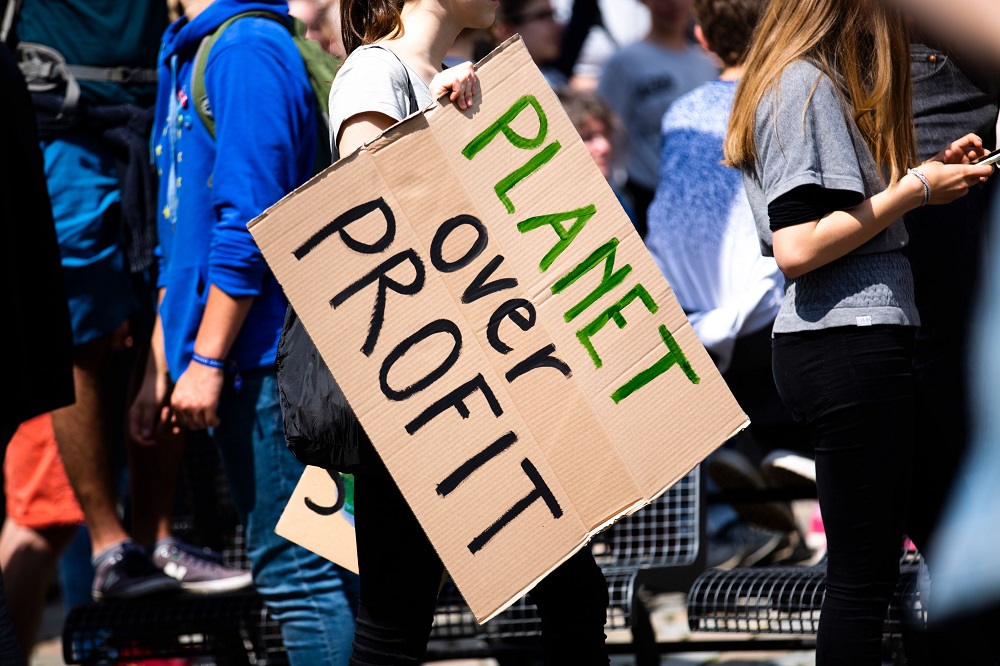New research reveals the influence celebrities and politician could have driving climate action

A new study reveals the potential importance of high-status individuals in driving low-carbon behaviours among the populace.
A recent study from Cardiff University suggests that celebrities and politicians could play a crucial role in addressing climate change by setting an example for the public.
The research highlights that when high-status individuals visibly adopt low-carbon behaviours, the public is more likely to follow suit. This discovery sheds light on what some are suggesting could be a missing link in climate change mitigation efforts.
Study
The study, led by Dr Steve Westlake from Cardiff University’s School of Psychology, surveyed over 1,200 people across the UK to explore how the actions of public figures influence attitudes toward climate-friendly behaviours.
With the climate crisis demanding urgent action, the researchers wanted to understand whether seeing politicians and celebrities “walk the talk” could inspire others to make significant changes, such as reducing meat consumption, using public transport, or increasing energy efficiency at home.
“Behaviour change is essential for reducing greenhouse gas emissions quickly. Yet, these choices remain elusive for much of the population and are rarely encouraged by high-status individuals,” Dr Westlake explains.
The research tested how public figures leading by example, whether through adopting low-carbon behaviours or not, affects their credibility and the public’s willingness to act.
Findings
The results were immediately clear, visible leadership from celebrities and politicians significantly increases the public’s willingness to adopt low-carbon behaviours. People were more likely to trust and respect leaders who demonstrated climate-friendly practices.
“We found that leading by example greatly improves public perceptions of leader credibility, trustworthiness, and competence,” Dr Westlake stated. “Leaders need to be credible to lead effectively, so this could be an important finding.”
The study showed that when public figures actively embrace low-carbon lifestyles, it sends a powerful message that these actions are both necessary and achievable.
Conversely, when they do not practice what they advocate, it negatively impacts public motivation to act.
Leadership
One of the most striking outcomes of the study is the strong desire from the public to see leadership on climate action. Many participants expressed frustration with leaders who advocate for environmental responsibility but fail to lead by example.
“There is a strong appetite for leadership among the public—people really want to see leaders acting first,” Dr Westlake noted.
The research suggests that embodied leadership, where high-status individuals adopt visible low-carbon behaviours, could be the missing link in addressing the climate crisis.
This idea is especially relevant in the UK, where political figures and celebrities often hold significant influence over public opinion. Their actions, or lack thereof, could be pivotal in driving a wider societal shift toward more sustainable living.
Implications
The significance of this research extends beyond just reducing the personal carbon footprints of public figures. By setting a visible example, celebrities and politicians can create a ripple effect that encourages wider climate action.
Dr Westlake emphasised this point: “Our study demonstrates that celebrities and politicians who lead by example are doing much more than just reducing their own carbon footprint—they also encourage others to act and improve their credibility.”
For policymakers and campaigners in Wales and beyond, this research highlights a critical opportunity. Encouraging public figures to embrace low-carbon behaviours could be an effective strategy in raising awareness and motivating the public to take action on climate change.
This is particularly important in light of Wales’ ongoing efforts to achieve net-zero carbon emissions by 2050.
Further Information
The study, Leading by example from high-status individuals: exploring a crucial missing link in climate change mitigation, was published in Humanities and Social Sciences Communications by Springer Nature.
It was conducted by Dr Steve Westlake and Professor Nick Pidgeon from Cardiff University, alongside Dr Christina Demski from the University of Bath.
Support our Nation today
For the price of a cup of coffee a month you can help us create an independent, not-for-profit, national news service for the people of Wales, by the people of Wales.




